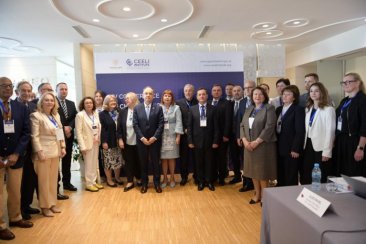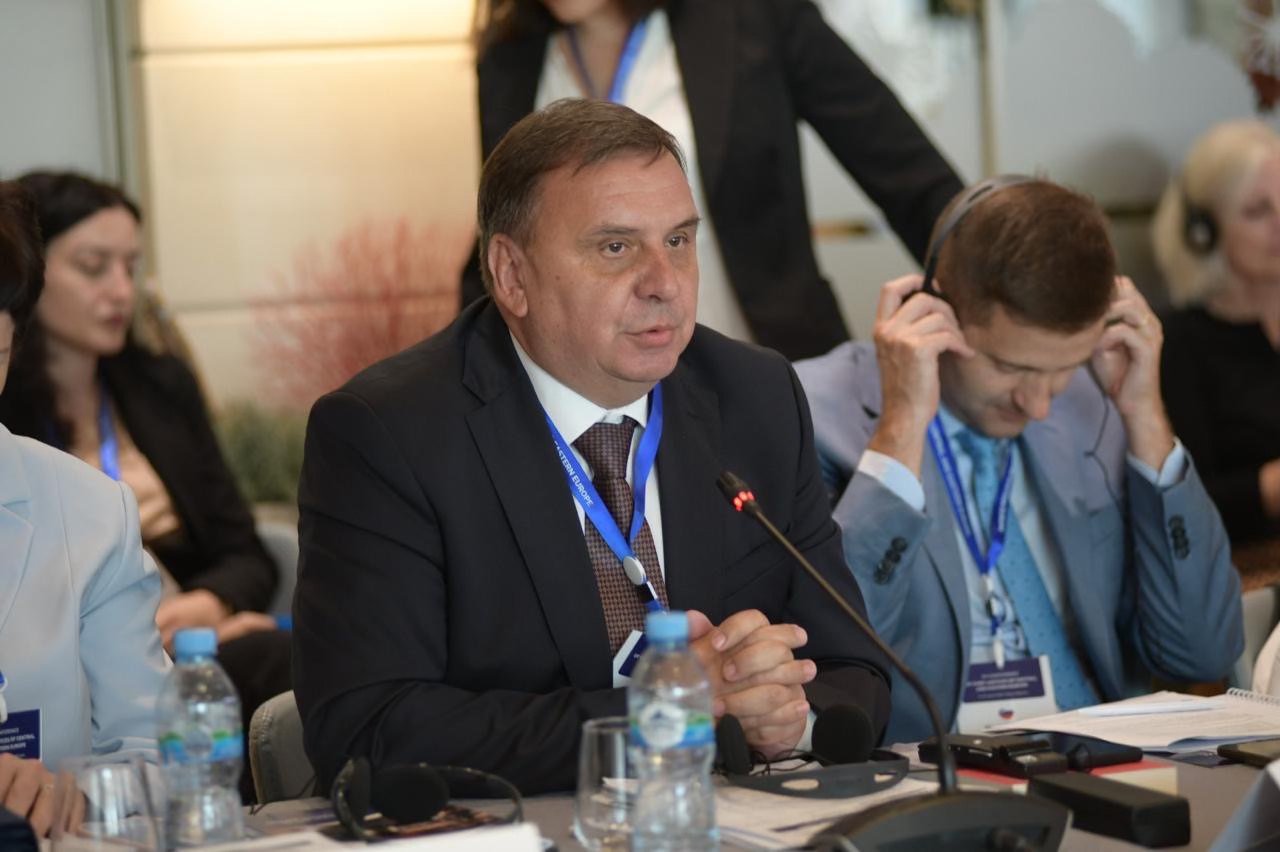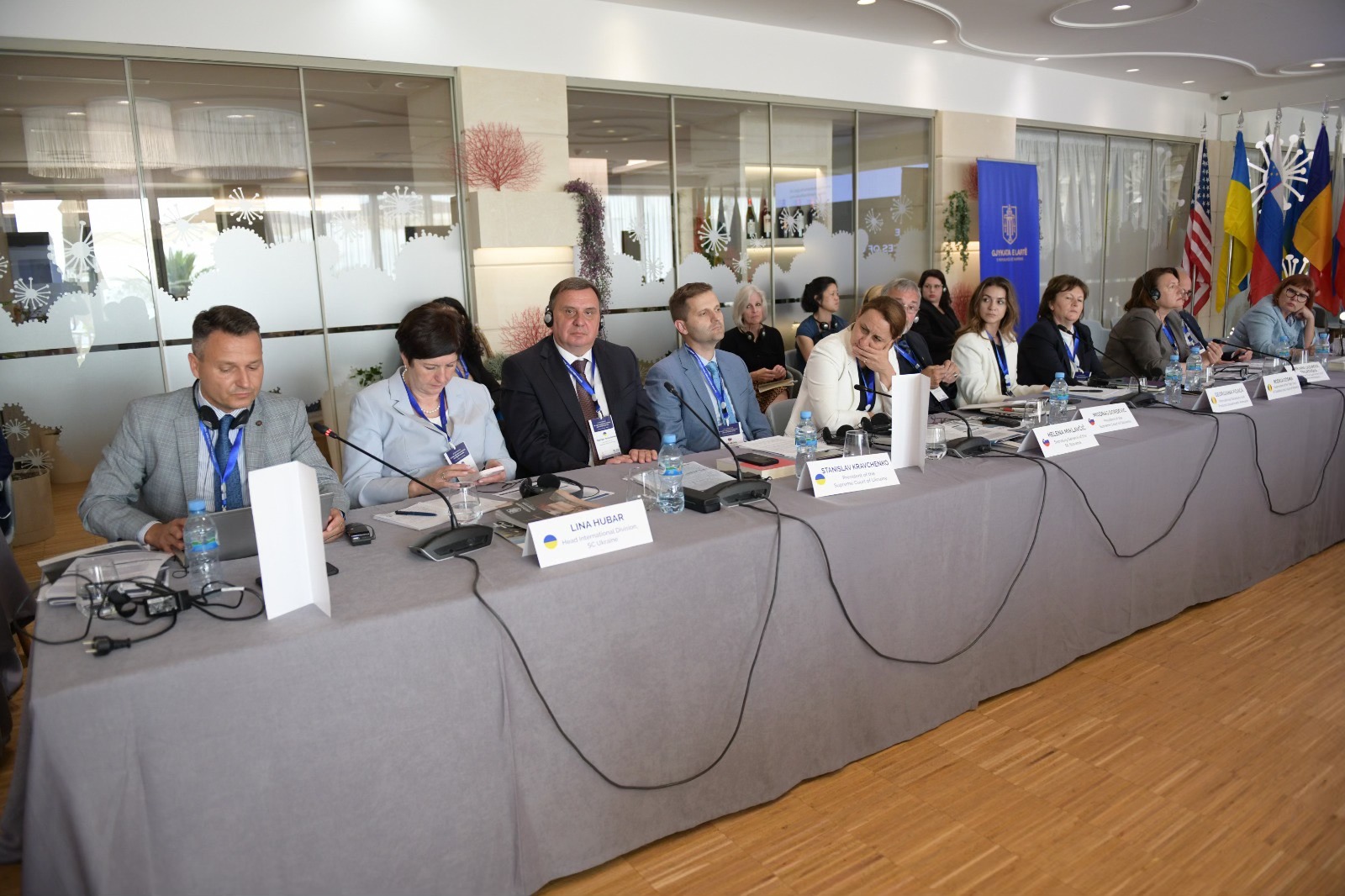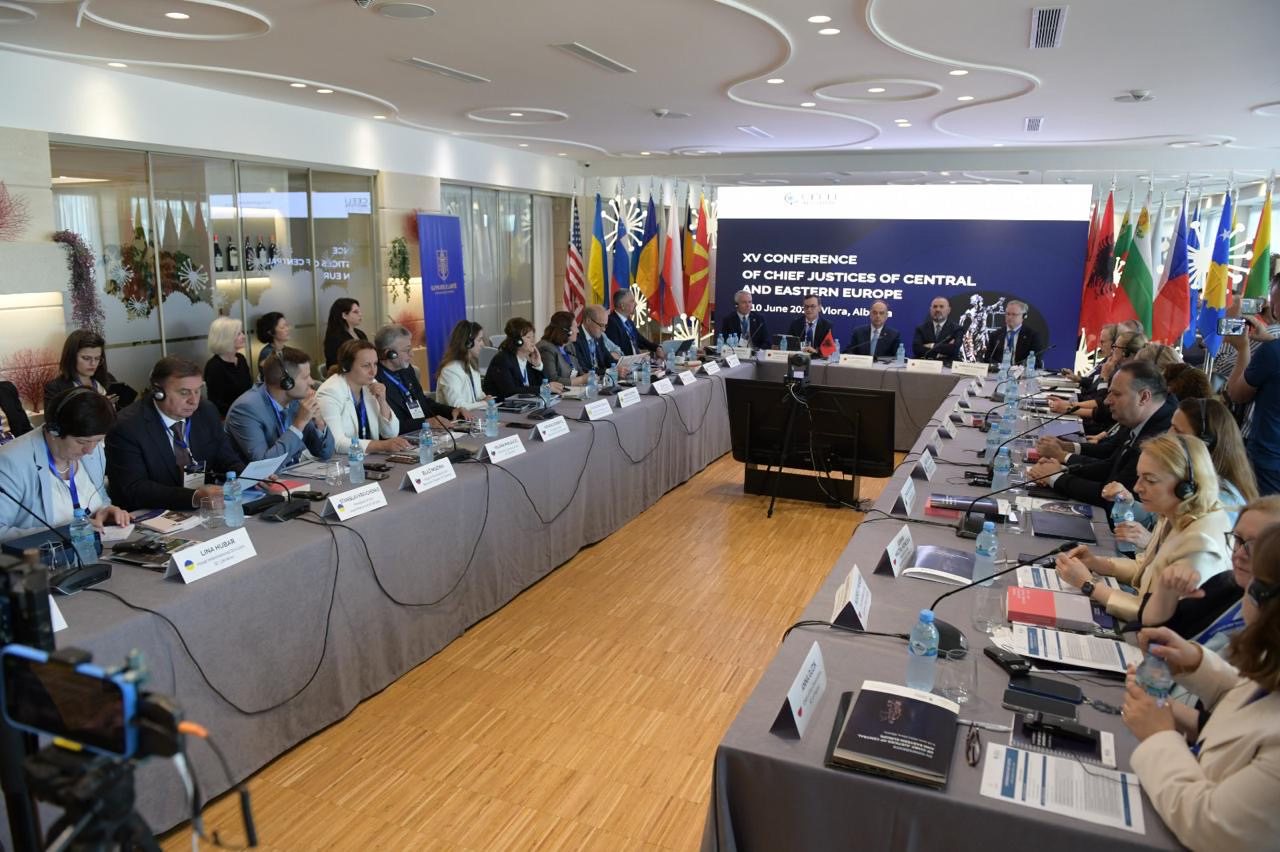Contact center of the Ukrainian Judiciary 044 207-35-46

This year's event was organised by the Supreme Court of the Republic of Albania in cooperation with the Central and Eastern European Law Initiative (CEELI). Bringing together the chief justices of the supreme courts of Central and Eastern Europe, the conference provides an important platform for discussing issues related to judicial independence, the rule of law and regional cooperation.
At the opening of the event, the President of the Supreme Court of the Republic of Albania Sokol Sadushi, the President of the Republic of Albania Bajram Begaj, the Minister of Justice of the Republic of Albania Ulsi Manja and the Senior United States Judge for the District of Arizona David Campbell delivered welcoming speeches.
The first session of the conference was dedicated to the issue of public trust in the judiciary. The participants shared their views on the factors that influence its level and the role of judicial ethics in strengthening public trust in the judiciary, as well as analysed the experience of implementing measures aimed at increasing the level of transparency of judicial proceedings and public understanding of the judiciary and its importance in society.

Joining the discussion, Stanislav Kravchenko noted that the second year of active negotiations on Ukraine's accession to the European Union is underway and that a significant part of the tasks envisaged by the European integration roadmap relates to judicial reform and judicial independence.
The SC President also expressed his gratitude to all the representatives of the Central and Eastern European states and the peoples of these countries for supporting Ukraine in a very difficult time.
"Indeed, Ukraine is going through the most tragic times in its history. However, we have never intended to blame our problems on the war and distance ourselves from them. Ukraine has set a clear course for European integration. And for us, these are not just words, this is our strategic goal, which we are making every effort to achieve," said Stanislav Kravchenko.

The second session focused on the challenges and mechanisms for ensuring the unity of case law through a consistent interpretation of legislation by the supreme courts of different countries. In this context, questions were raised about the role of supreme courts in harmonising legislation, resolving conflicting case law and ways to increase legal certainty and predictability of court decisions.
The relationship between national and international jurisdictions was discussed at the third and final session of the first day of the conference. In their speeches, the participants outlined the impact of international legal standards on national legislation and the work of courts, and shared their views on the intricacies of balancing national sovereignty with international legal obligations.

During the fourth and fifth sessions of the conference, the chief justices discussed ways to ensure the efficient and timely administration of justice, reduce the number of pending cases and explore alternative dispute resolution methods employed in other European countries. They also addressed the controversial aspects of using digital tools in the work of judges and lawyers, including automating court procedures with artificial intelligence, ensuring cybersecurity and data protection in e-justice systems and restricting the use of AI when preparing procedural documents.